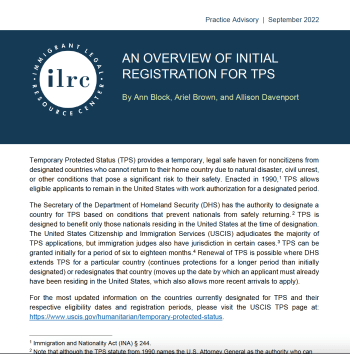FOIA
Level: IntermediateThis webinar will discuss FOIA requests in immigration cases and provide tips for filing FOIA requests with DHS, including USCIS, OBIM, ICE and CBP. Researching clients’ case histories may become particularly important if any of...
Hot Topics in Asylum Law
This webinar is intended for practitioners already familiar with asylum law. It will discuss the current landscape of asylum law in the wake of the sustained attacks on the right to asylum over the last few years. It will also explore recent policy...
Current Status of the USCIS Fee Rule and Fee Waivers
The presenters will describe the current status of court injunctions impacting USCIS’s efforts to change the fee schedule and fee waiver standards in 2020. The webinar will review the current regulations that USCIS must apply on fee waivers and fees.
Essentials of Asylum Law
Essentials of Asylum Law provides an overview of asylum law for advocates new to representing asylum clients, as well as for seasoned practitioners needing a thorough review of current standards. This edition addresses the whirlwind of new policies...
Applying for Asylum and Related Relief for Clients with Convictions
Convictions and other criminal system contact jeopardize eligibility for asylum and withholding of removal. Recent regulations have expanded these criminal bars to these critical forms of protection from persecution. This webinar will discuss up-to...
A Guide for Immigration Advocates
A Guide for Immigration Advocates is a practical and essential tool for beginning immigration attorneys, paralegals, DOJ accredited representatives, and nonprofit community-based organizations. The Guide is unique among immigration law resources...
Establishing Social Group in Asylum Claims
This webinar will focus on establishing a social group and proving nexus in asylum claims. We will highlight hot topics in social group analysis, including recent decisions by the Attorney General and Board of Immigration Appeals, such as Matter of A...
Essentials of Asylum Law - 4th Ed., 2018
This publication provides an overview of asylum law for advocates new to representing asylum clients, as well as for seasoned practitioners needing a thorough review of current standards.
